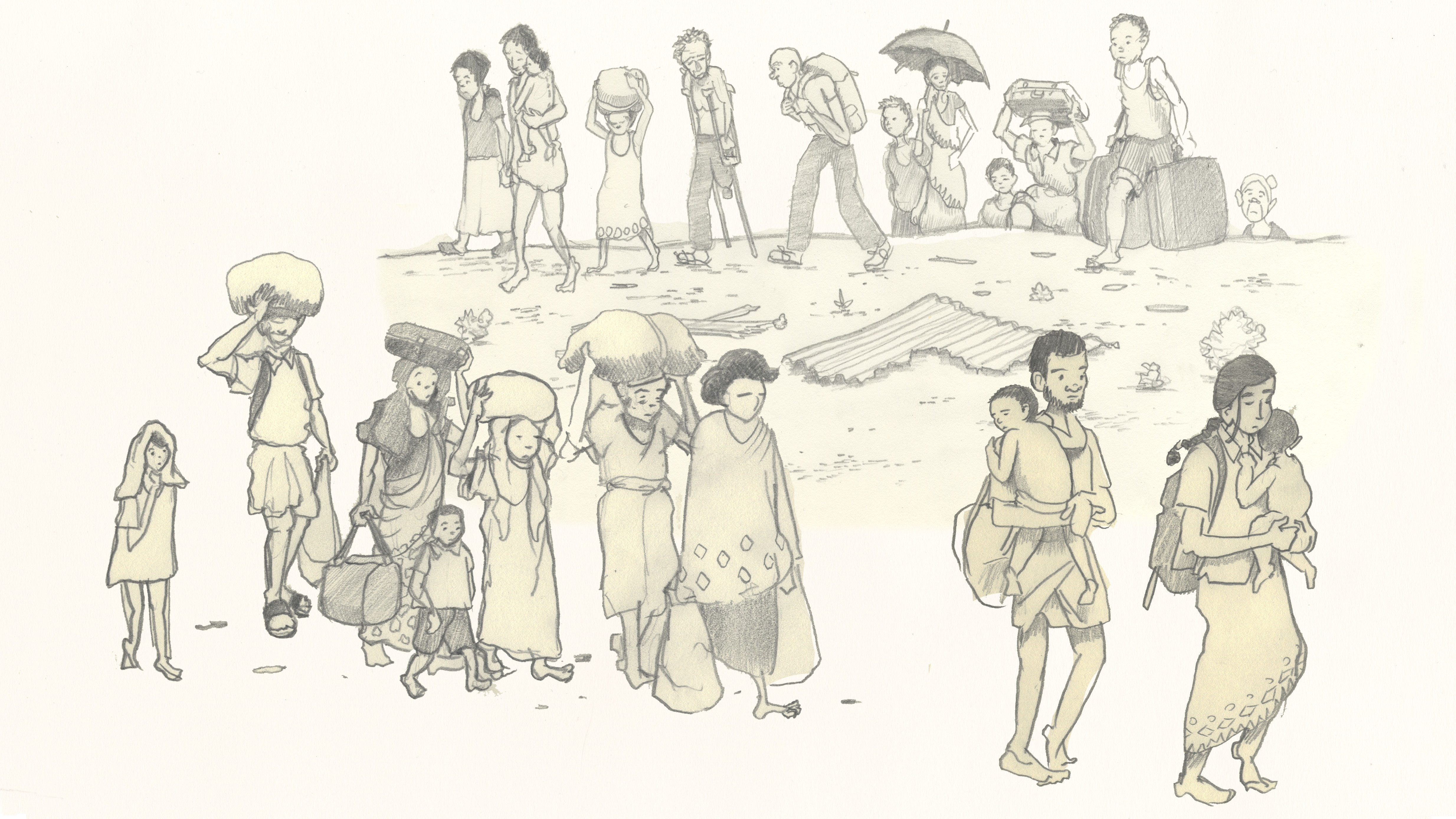Living on the margins: understanding the role of borderland brokers in post-war transitions
Using literary comic strips to develop narratives which assist in understanding the role of borderland brokers in post-war transitions in Nepal and Sri Lanka.

This project aims to improve understanding of, and policy responses, to post-war transitions in Nepal and Sri Lanka. It examines how key local actors from peripheral regions - or 'borderland brokers' - respond to and help shape changing centre and periphery relations in post-war transitions.
It adopts an innovative analytical and methodological approach to documenting the life histories of these brokers (local businessmen, administrators, civil society leaders or politicians) by using literary comic strips to develop narratives that are co-produced by respondents and local artists.
As well as providing a novel approach for generating compelling accounts of brokers' lives and the wider post-war transitions that they shape, the literary comics will also present unique opportunities to engage policy audiences and the general public. The project will therefore help to shape unfolding national and international policy debates relating to post-war transitions in Nepal and Sri Lanka on themes such as transitional justice, devolution, and inclusive post-war development.
The project will explore three core questions about borderland brokers:
- How have borderland brokers adapted to, and shaped changes in conflict and peace building dynamics?
- How do they draw on cultural, material and political resources to negotiate changing centre-periphery relations?
- How have they influenced wider processes of peace building or state building?
These questions will inform a fourth relating to policy implications: how can policy makers better engage with the mechanisms of brokerage in order to consolidate post-war transitions?
The project will apply an innovative analytical framework for understanding post-war transitions. The margins of the state in conflict-affected countries are typically sites of institutional patchiness where the state's rule overlaps with other forms of governance. As a result, actors located at the political or economic centre will often rely on intermediaries or brokers to mobilise political support or to access markets and capital in these peripheral zones.
The project will make a novel methodological contribution by using literary comics for co-producing and publishing life histories in close collaboration with research respondents, local artists and media organisations. The research will reflect on this method, and the associated benefits it can generate for researchers seeking to uncover and communicate the largely hidden narratives of these key actors.
The project develops a highly original approach for influencing peace building and development policy internationally and in Nepal and Sri Lanka. It will leverage existing networks established through the project which link research findings to policy debates in Sri Lanka, Nepal and internationally. The project's impact will be enhanced by PositiveNegatives' extensive policy and media links and will work with both international media organisations and local news and current affairs platforms in Nepal and Sri Lanka.
Project outputs and impacts
- Journal article (refereed)
- Four literary comics published on the project website and via local media outlets in Nepal and Sri Lanka such as the Daily Mirror, The Himalayan, recordnepal.com and groundviews.org, and via international media such as The Guardian, BBC and Huffington Post
Project team
- Oliver Walton, University of Bath
- Jonathan Goohand, School of Oriental & African Studies
- James Caron, School of Oriental & African Studies
- Benjamin Dix
Funder
This project was funded by Arts and Humanities Research Council (AHRC).
